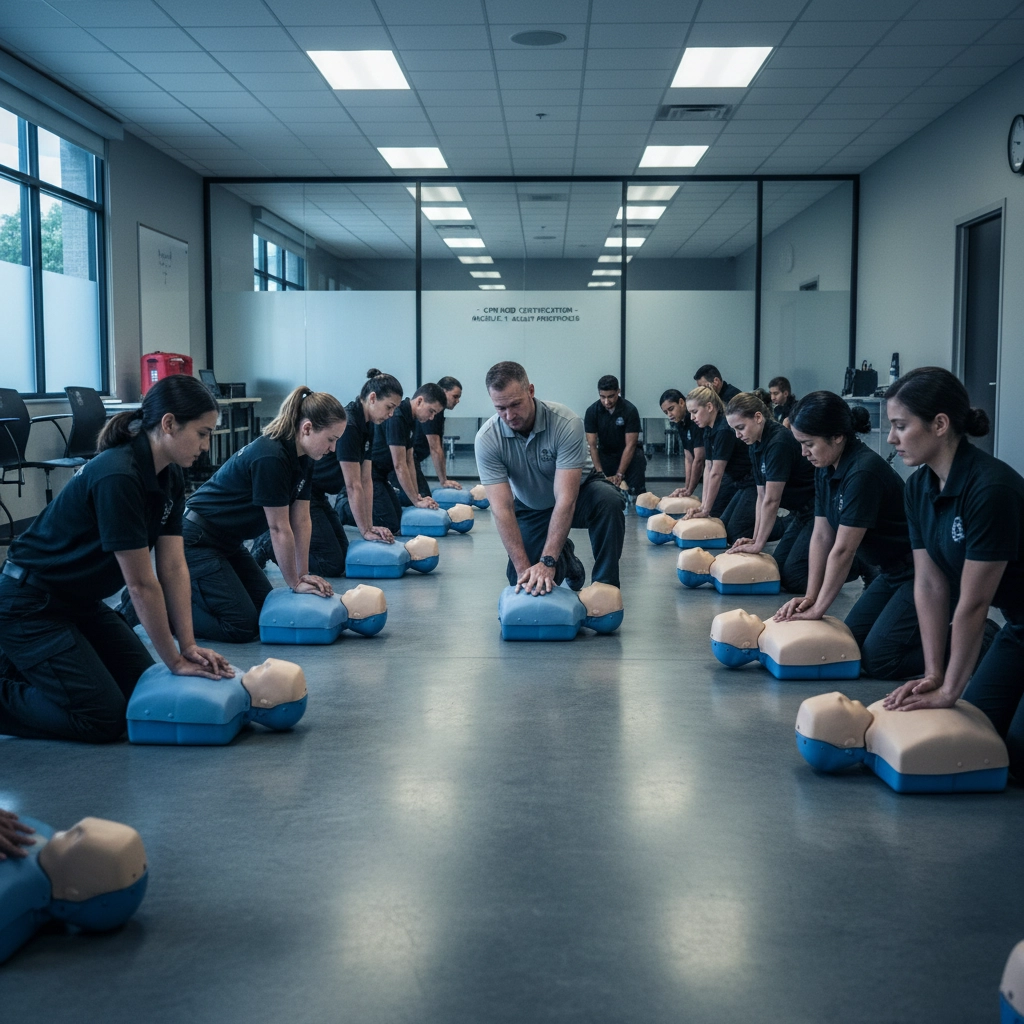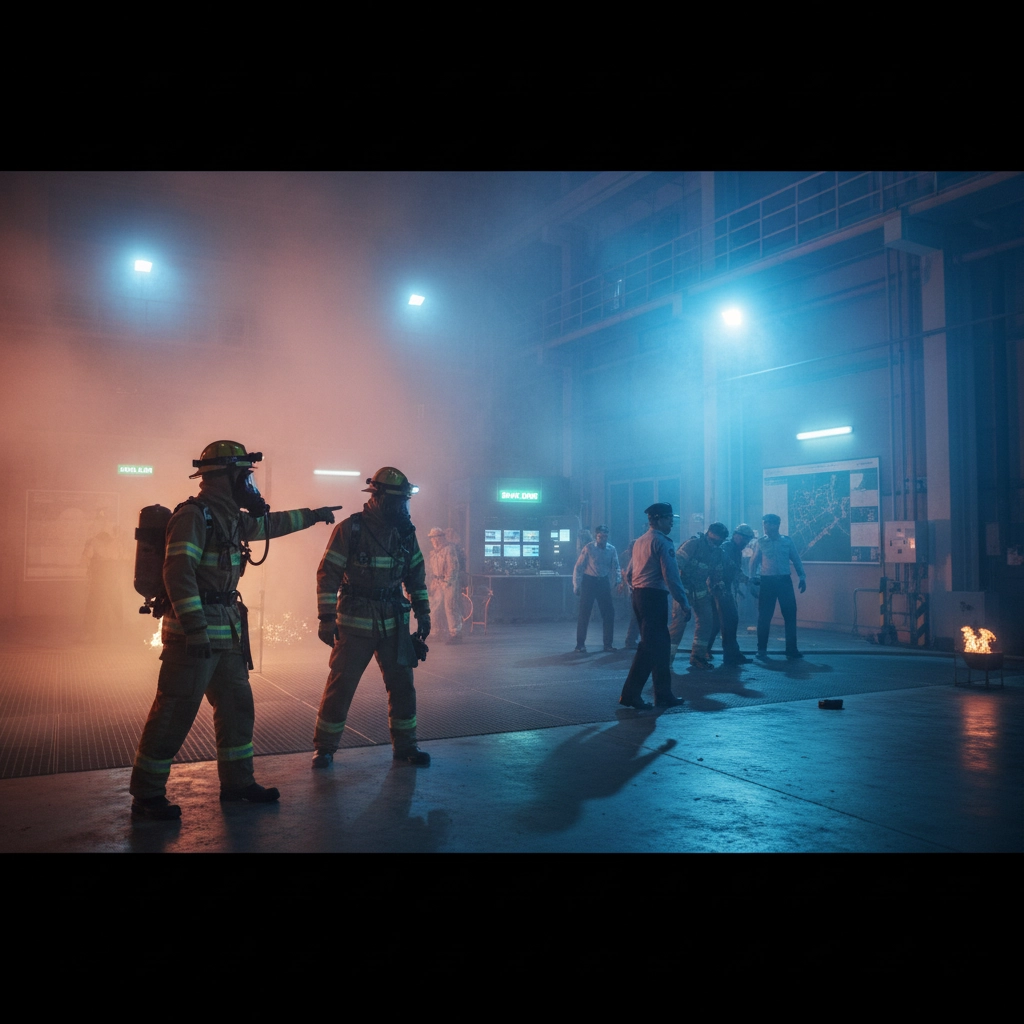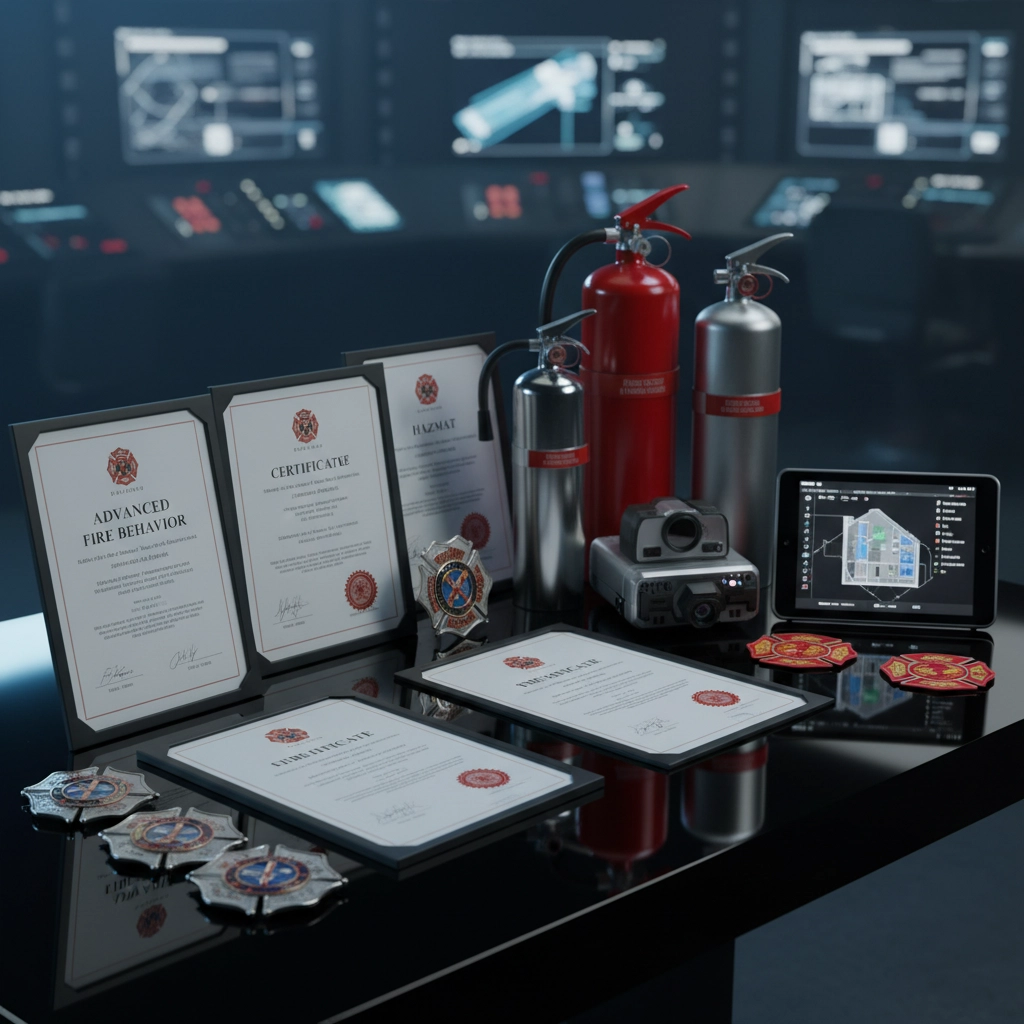From Security Guard to Fire Response Expert: 5 Steps to Expand Your Emergency Skills
- bouf55
- Sep 13
- 5 min read
Working as a security guard gives you a solid foundation in emergency response, but expanding into fire response expertise can significantly boost your career prospects and earning potential. The transition from general security to specialized fire response isn't just possible: it's a natural progression that builds on skills you already have.
Many security professionals don't realize how transferable their existing skills are. Your experience with crisis management, communication protocols, and maintaining calm under pressure provides an excellent starting point for fire response specialization. The key is knowing which specific steps to take to bridge the gap between where you are now and where you want to be.
Understanding the Value of Fire Response Skills
Fire response expertise is increasingly valuable in today's security landscape. Property managers, corporate facilities, and industrial sites all need professionals who can handle fire emergencies effectively while maintaining their regular security duties. This dual expertise makes you more valuable to employers and opens doors to higher-paying positions.
The demand for security guards with emergency response training continues to grow across Canada. Companies recognize that investing in multi-skilled security personnel reduces their overall staffing costs while improving safety outcomes. When you can handle both security and fire response duties, you become an indispensable team member.
Step 1: Assess Your Current Emergency Skills
Before diving into specialized training, take an honest look at your existing capabilities. Most security guards already possess several transferable skills that form the foundation for fire response expertise. These include critical thinking abilities, effective communication skills, attention to detail, and the capacity to remain calm during emergencies.

Create a skills inventory by listing your current certifications, training experiences, and on-the-job emergency situations you've handled. Include any first aid training, crisis communication experience, and familiarity with emergency protocols. This assessment helps identify which areas need development and which strengths you can build upon.
Consider your physical fitness level, as fire response often requires more demanding physical tasks than traditional security work. Evaluate your comfort level with emergency equipment, your ability to make quick decisions under pressure, and your experience coordinating with emergency services.
Document any gaps you identify, but don't let them discourage you. Every expert started as a beginner, and recognizing areas for improvement is the first step toward professional growth.
Step 2: Pursue Essential Emergency Response Training
The foundation of fire response expertise lies in comprehensive emergency response training. Start with basic life support certifications including CPR and AED usage. These certifications are often required for fire response positions and demonstrate your commitment to emergency preparedness.
Enroll in first aid courses that cover wound care, treatment of burns, and recognition of medical emergencies like heart attacks or strokes. Many community colleges and training centers offer these programs at affordable rates, making them accessible regardless of your budget.

Communication training deserves special attention, as effective communication can mean the difference between a controlled situation and a catastrophe. Learn to use radio systems efficiently, provide clear information to emergency services, and guide people during evacuations. Practice delivering instructions calmly and clearly, even when adrenaline is running high.
Consider pursuing fire safety awareness courses that cover fire behavior, types of fire suppressants, and basic fire prevention principles. Understanding how fires start and spread gives you valuable knowledge for both prevention and response situations.
Step 3: Gain Hands-On Experience Through Scenario Training
Theoretical knowledge only takes you so far: real expertise comes from practical application. Seek out scenario-based training opportunities that simulate actual fire emergencies. These exercises help you apply your knowledge in realistic situations while building confidence and improving reaction times.
Many training facilities offer drill scenarios including fire outbreaks, smoke evacuation procedures, and coordination with emergency services. Participate in these exercises whenever possible, treating each scenario as a learning opportunity rather than a test.

Look for volunteer opportunities with local fire departments or emergency response organizations. Many departments welcome volunteers for training exercises and community events. This hands-on experience exposes you to professional fire response procedures while building valuable connections in the emergency services community.
Practice using fire safety equipment like extinguishers, hoses, and smoke detection systems. Familiarity with this equipment builds confidence and ensures you can act quickly when seconds count. Remember that proper equipment usage requires training: never attempt to use equipment you haven't been properly trained on.
Step 4: Build Professional Networks and Seek Mentorship
Professional networking accelerates your transition from security guard to fire response expert. Join security industry associations and emergency response organizations to connect with experienced professionals who can provide guidance and career advice.
Attend industry conferences, training seminars, and local meetups whenever possible. These events offer opportunities to learn about new developments in fire response technology, meet potential mentors, and discover job opportunities before they're publicly advertised.

Seek out mentorship relationships with experienced fire response professionals. Many seasoned experts enjoy sharing their knowledge with motivated newcomers. A mentor can provide insider insights about career paths, recommend specific training programs, and help you avoid common mistakes.
Consider joining online forums and social media groups focused on emergency response and fire safety. These communities share valuable information about training opportunities, job openings, and industry trends. Active participation demonstrates your commitment to professional development.
Step 5: Obtain Advanced Certifications and Pursue Specialized Roles
With foundational training complete and practical experience gained, focus on obtaining advanced certifications that distinguish you from other candidates. Research which certifications are most valued in your target market and create a plan to obtain them systematically.
Fire safety management certifications demonstrate your ability to handle complex emergency situations and lead response efforts. These advanced credentials often lead to supervisory positions with higher salaries and greater responsibility.

Look for specialized training in areas like hazardous materials response, industrial fire safety, or high-rise emergency procedures. These niche specializations can make you particularly valuable to specific types of employers.
Consider pursuing leadership and management training to prepare for supervisory roles. As you gain expertise, you may have opportunities to train other security personnel or coordinate emergency response teams. Strong leadership skills combined with technical expertise create powerful career advancement opportunities.
Stay current with continuing education requirements and emerging technologies in fire response. The field evolves constantly, and maintaining current knowledge demonstrates your commitment to professional excellence.
Taking Action on Your Career Goals
Expanding from security guard to fire response expert requires commitment, but the rewards justify the effort. Higher salaries, increased job security, and the satisfaction of developing life-saving skills make this career progression worthwhile for motivated professionals.
Start by completing your skills assessment and identifying immediate training needs. Set realistic timelines for obtaining certifications and gaining practical experience. Remember that career transitions take time: focus on steady progress rather than rushing through the process.
The security industry needs more professionals with emergency response expertise. By developing these specialized skills, you're not only advancing your own career but also contributing to public safety in your community. Every step you take toward fire response expertise makes you more valuable to employers and better prepared to handle emergency situations.
Your current experience as a security guard provides an excellent foundation for this career expansion. With dedicated effort and the right training approach, you can successfully transition into fire response expertise while building a more rewarding and secure professional future.

Comments